
Register Now
Telomeres - Natural Food & Natural Supplements
There
is a measurement that demonstrates which foods will make you
“biologically” younger and which can age you more quickly. That
measurement is the length of your telomeres.1
A new study, presented at this year’s European and International Conference on Obesity was published in the American Journal of Clinical Nutrition The study confirmed a direct line between eating processed and junk foods in shortening your telomeres.1
Telomeres are the protective caps at the ends of each of your
chromosomes. The longer your telomeres, the younger your cells are.
The shorter they are, the more vulnerable you become to symptomatic
expressions and diseases of aging.
The typical American diet is loaded with increasing amounts of sugars,
chemicals, heavy metals and imitation foods. Americans also consume
meat that comes from diseased, antibiotic and grain-fed animals that
live in crowded quarters. They are not fed on natural grasses, and they
don’t live in the open spaces.
Today, most vegetables, breads, pastas, and other processed non-meat
products are packed with chemicals refined starches and sugars. The
crops and the animals come from industrialized, pesticide-laden,
genetically modified crops grown on land that has been treated with
insecticides and defoliates.
Researchers from the University of Navarra in Pamplona, Spain, found
three or more servings of ultra-processed foods doubled your risk of
shortened telomeres. These foods include convenience
items, such as: deli meats and hotdogs; instant soups and noodles;
packaged bread and buns; snacks like chips, cookies, and pastries; soda
and energy drinks; as well as sweetened fruit, yogurts, and breakfast
cereals – even those marked as “healthy.”
These are not real foods. They are an industrially manufactured
imitation foods, made up of cheap, processed oils, fats, sugars and
modified starch. They contain very small amounts of natural
ingredients. They also usually include artificial flavorings, aromas,
colorings, emulsifiers, preservatives, and other additives. These
concoctions increase shelf life and profit margins, but reduce human
life and the length of telomeres.
We must eat natural foods and take whole food supplements, along with
whole food nutrients with adequate protein, natural fats, minerals and
trace minerals.
We must focus our meals on high quality vegetables, healthy fats, natural fruits and quality protein.
If we eat meats, it should be grass-fed red meat with organic fruits and vegetables. This will help create healthy, non-symptomatic bodies and lengthen our telomeres.
It is important that we supplement with non-GMO whole foods and
supplements. Natural vitamin C intake has been shown to increase
telomere length. It is a crucial antioxidant, promotes normal growth and
repair. Along with guinea pigs, fruit bats and gorillas – humans are
among the few species on the planet that do not produce vitamin C in
their own bodies.
Studies confirm that raising the level of vitamin C in the cells slows down the shortening of telomeres by up to 62%.2,3
In another study, vitamin C slowed telomere shortening and also increased cellular lifespan.4
You’ll find vitamin C in a wide array of foods, including oranges,
strawberries, kale, acerola cherries, broccoli, cauliflower, Brussels
sprouts, parsley, bell peppers, guava and papaya.
Nothing tops Optimal Whole C and Optimal Fruit and Veggie Plus for natural and usable nutrients.
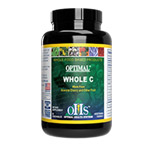
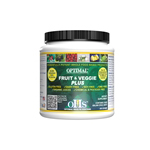
They set a whole new standard for nutrients to prevent telomere
shortening. Optimal Complete Nutrition Plus, Opti Mito-Force and
Opti-MagnaSTEM also assist the mitochondria and telomeres.
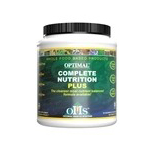
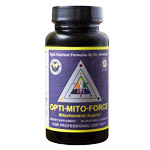
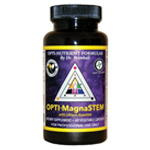
It is time to go NATURAL!
Yours in Health and Wellness,
John W Brimhall, DC, BA, BS, FIAMA, DIBAK
1.
Alonso-Pedrero L, et al. “Ultra-processed food consumption and the risk
of short telomeres in an elderly population of the Seguimiento
Universidad de Navarra (SUN) Project.” The American Journal of Clinical Nutrition, Volume 111, Issue 6, June 2020, Pages 1259–1266.
2. Furumoto K. et al. “Age-dependent telomere shortening is slowed down
by enrichment of intracellular vitamin C via suppression of oxidative
stress.” Life Science 1998, vol. 63, no. 11 pp. 935-48.
3. Shen J, et al. “Telomere length, oxidative damage, antioxidants and breast cancer risk.” Int J Cancer. 2009 Apr 1; 124(7):1637-43.
4. Xu Q, et al. “Multivitamin use and telomere length in women.” Am J Clin Nutr. 2009 Jun;89(6):1721
Health Professionals, You're Invited To
OHS - Brimhall Homecoming 2021
I CAN - The Innovative Care And Nutrition Biohacking Weekend
for You & Your Clinic!
January 7-10, 2021
Arizona Grand Resort & Spa, Phoenix, AZ
(Only registered customers can rate)
There are no comments for this product.